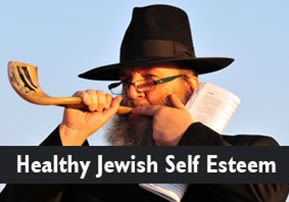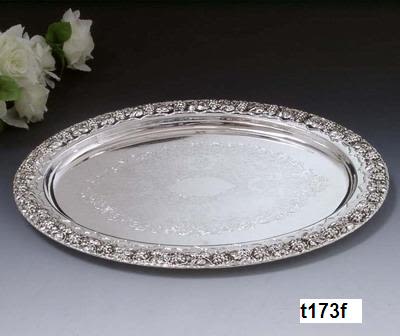
Healthy Jewish Self Esteem
On the outside, many of us may seem super-confident, even abrasively so. But that's just a projection for the outside world. On the inside, we're so down on ourselves...

Part 1 – Identifying The Problem
You know, I've been after 'happiness' for quite a while now. I've done loads of praying to 'be' happy; I've visited lots of dead holy people to get some heavenly help on the happiness front; I've even taught a whole long class on it, called the Happy Workshop, which was based on Rav Arush's guide to living a happy life, The Garden of Wisdom.
It all helped a lot, it really did. Compared to the miserable, moany, depressed, uber-negative creature I was a few years' ago, I am sooooooo much happier. But happy? Not quite. And I know that's not what G-d wants. G-d really, really wants me to be happy.
But 'something' seemed to be blocking me from getting there. In the last couple of months, Hashem has been sending me lots of clues as to what it was, until a few weeks' ago, the penny finally dropped: I had really low self-esteem!
Low self-esteem is that feeling that I'm not good enough; that nothing I do is good enough; that I'm a fake, a  phony; that if people REALLY knew how bad I was, no-one could like me, let alone love me; even G-d can't love a person like me; G-d doesn't forgive me or accept me; I can't accept myself – I do so many bad, nasty things all the time…etc etc etc
phony; that if people REALLY knew how bad I was, no-one could like me, let alone love me; even G-d can't love a person like me; G-d doesn't forgive me or accept me; I can't accept myself – I do so many bad, nasty things all the time…etc etc etc
The tipping point came after I watched a great clip here on Breslev.co.il, called 'Rav Arush's vote for happiness.' In that clip, Rav Arush basically said (paraphrasing): "Any thought that tells you you're bad, nasty, evil, worthless is from the evil inclination; and every thought that makes you feel good about yourself is from Hashem."
He also said that fundamentally, there is only one aveira, or sin, a person can do: being miserable.
Great! So now I was down to just one sin…but it was quite a big sin that I was doing far too much of the time. As I was pondering all this, I happened to listen to a Rav Arush CD, that was talking exactly about the same thing (there are more than 600 Rav Arush CDs out there, but after a while you stop being surprised by the amazing Divine Providence you always get with the stuff from Chut Shel Chesed. Whatever CD I listen to, it's always exactly what I need to hear.)
In that CD, Rav Arush explained that the main thing stopping us from being happy, is that we suffer from 'beating ourselves up disease', aka, low self-esteem. On the outside, many of us may seem super-confident, even abrasively so. But that's just a projection for the outside world. On the inside, we're so down on ourselves!
The next clue came when I picked up a book about Emotional Freedom Technique (or 'tapping', as it's popularly called) – which had a whole list of things that pointed to a person having low self-esteem.
Some of the things it talked about was needing to be perfect; constantly criticising yourself or others; taking no risks or stupid risks; thinking rigidly; being a super under or over-achiever, being very fearful and panicky; and apologising too much OR reacting aggressively and defensively whenever you are challenged, amongst other things.
It was so interesting to read all this in a secular book, because it basically listed exactly the same characteristics of the super-intellectual, anti-emuna, hugely arrogant, and incredibly miserable 'clever one', from Rav Arush's book on how to be happy, The Garden of Wisdom.
The other interesting thing was that so many of the people I know, including myself and my husband, clearly have low self-esteem. A lot of the most outwardly-successful, super-popular, thin, gorgeous amazing people on the planet are eating themselves up with self-doubt and self-dislike, for all they try to hide it so well. It was a massive eureka! moment.
Now I wanted to know, where did all this low self-esteem come from, in the first place?
Literally the next day, a friend bought me a book, again completely randomly, called It's All in Your Mind, by Sara Ovadia, the daughter-in-law of Rav Ovadia.
On page 224, she answered my question very succinctly: "Everyone is born with a large measure of self-esteem. Every infant who arrives in the world knows how to love and accept himself as he is…. Negative criticism diminishes a person's self-esteem…a person's stock of positive thoughts about himself can slowly evaporate, and eventually he will criticise himself and his own personality, and he will begin to blame himself for all sorts of things….
"Negative criticism that we received in our early years seeps into our very being and penetrates our subconscious without our even realizing it."
Next, I picked up Rav Arush's book on raising children with love, The Garden of Education, and this is what I read:
"The Evil Inclination's prime ploys are self-condemnation and self-criticism. When parents criticise their children, they strengthen and solidify their child's Evil Inclination of self-condemnation…The child is subsequently plagued with self-guilt, as if he is responsible for everything. This approach is the opposite of emuna, which says parents should be teaching their children to pray and to seek Hashem's help."
In other words, Hashem had just shown me the root cause of 'beating yourself up disease,' namely, being raised in homes with very little emuna. When the parents don't believe that G-d is running the world, they criticise, condemn and blame everyone (including themselves) for every little thing that doesn't go to plan.
If we 'did well', then we got praise and attention (if we were lucky…) But if we didn't? Boy, did we get blasted.
This is the paradigm of 'conditional love' that we are now all stuck with, at least in our subconscious. This 'voice from the past' tells us that only if we're perfect, and we always do as we're told, and we achieve and we succeed, are we worth something.
Of course, the problem is that this is completely impossible! All of us have limitations, and issues, and blind spots. We all make mistakes, because we aren't angels.
And that's exactly why we have low self-esteem. That's why we feel 'down' about ourselves (on the inside, even if we aren't admitting it.) That's why we find it hard to care for our family members, and difficult to empathise with others, and impossible to accept ourselves 'as is'.
The first part of the equation had fallen very neatly into place. Now, I wanted to know how to solve my own problems of low self-esteem, and how to avoid passing that problem on to my own kids.
Next week, G-d willing, I'll share that with you in Part 2 – Finding the solution
* * *
Check out Rivka Levy's new book The Happy Workshop based on the teachings of Rabbi Shalom Arush











4/16/2013
Very good article. I really enjoyed your article. There is one point I wish to bring up: You say that self-esteem is inbuilt from birth and later factors cause the child to lose it. That is a chiddush! We know that some babies are naturally happier than others. Is it not possible that some babies are also naturally more endowed with self-esteem than others? Obviously parental attitudes shape the child's self perception and self-confidence. But inbuilt traits may also play a part in levels of self-esteem. R.d.d.
4/16/2013
I really enjoyed your article. There is one point I wish to bring up: You say that self-esteem is inbuilt from birth and later factors cause the child to lose it. That is a chiddush! We know that some babies are naturally happier than others. Is it not possible that some babies are also naturally more endowed with self-esteem than others? Obviously parental attitudes shape the child's self perception and self-confidence. But inbuilt traits may also play a part in levels of self-esteem. R.d.d.